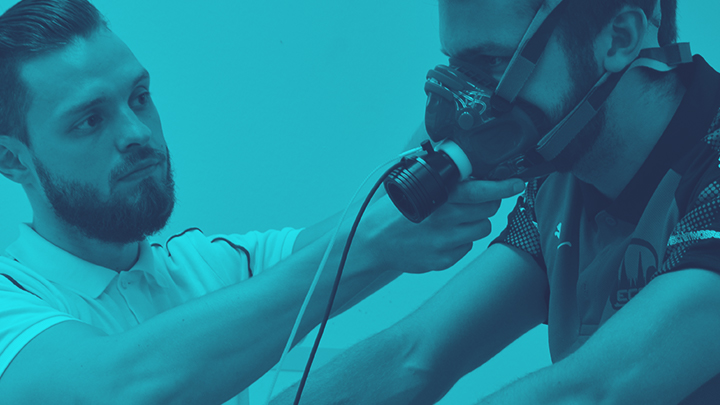
In our sixth eSports survey, the focus was on the topics of physical activity and sedentary behavior.
Once again, we were able to reach over 400 video gamers and esports athletes. Unlike previous years, the results were communicated solely through a press release rather than a press conference. Attached you will the results of the second eSport Study 2023 in german.
• eSportwissen.de – eSport Study 2023.2
In our fifth e-sports-related survey, we focussed on the topics of mental health and resilience.
We were again able to reach over 1000 video gamers and e-athletes for this purpose. As in previous years, the results were presented by Prof. Dr Ingo Froböse, former head of the Institute for Exercise Therapy and Movement-Oriented Prevention and Rehabilitation, and Sabine Deutsche, member of the board of AOK Rheinland/Hamburg. Attached you will the results of the eSport Study 2023 and a fact sheet in german.
• eSportwissen.de – eSport Study 2023
• eSportwissen.de – eSport Fact Sheet 2023
Studies from the years prior taught us about the health behavior, nutrition and wellbeing in esports. This year’s study complemented those findings by laying the focus on ergonomics and pain.
Therefore, we questioned over 1150 esport professionals and amateurs.
Just like the years before the findings were presented by professor Dr. Ingo Froböse, Head of the Institute of Movement Therapy and Movement-oriented Prevention and Rehabilitation at the German Sport University Cologne in collaboration with Rolf Buchwitz, Deputy Chairman of the Executive Board of the AOK Rhineland/Hamburg.
• eSportwissen.de – eSport Study 2022
• eSportwissen.de – eSport Fact Sheet 2022
In previous years, the eSport studies 2019 and 2020 already provided a comprehensive picture of health and training behavior as well as media consumption and well-being in esports. This year’s survey focused on nutrition, for which we interviewed over 800 esports amateurs and professionals. Again Professor Dr. Ingo Froböse, Head of the Institute of Movement Therapy and Movement-oriented Prevention and Rehabilitation at the German Sport University Cologne, presented the findings of the eSport-Study 2020. He was supported by supported by Rolf Buchwitz, Deputy Chairman of the Executive Board of the AOK Rhineland/Hamburg.
Attached you will the results of the eSport Study 2021 and a fact sheet in german.
• eSportwissen.de – eSport Studie 2021
• eSportwissen.de – Fact Sheet 2021
Already last year, the first eSport Study 2019 provided a comprehensive picture of health behaviour in esports. This year’s survey focused on the topics “well-being” and “recovery”, on which we interviewed over 1200 esports amateurs and professionals. Professor Dr. Ingo Froböse, Head of the Institute of Movement Therapy and Movement-oriented Prevention and Rehabilitation at the German Sport University Cologne, presented the findings of the eSport-Study 2020. He was supported by Rolf Buchwitz, Deputy Chairman of the Executive Board of the AOK Rhineland/Hamburg.
Attached you will find the results of the eSport Study 2019 and a fact sheet in german.
• eSportwissen.de – eSport Study 2020
• eSportwissen.de – Fact Sheet 2020
The number of video game and esports players is steadily rising. Since little is known about their health behavior to date, the present study examines the demographics and health behavior of video game and esports players. In this cross-sectional study, data on demographics, health status, physical activity, nutrition, sleep, and video game usage were assessed via a web-based survey of 1066 players in Germany in 2018. The majority of respondents (95%) reported a good to excellent health status. Two thirds (66.9%) engaged in moderate to vigorous physical activity for more than 2.5 h/week . The average duration of sitting and sleep time was 7.7 ± 3.6 h/day and 7.1 ± 1.3 h/day, respectively. Video games were played for 24.4 ± 15.9 h/week on average. Correlations revealed poor positive associations of video game play time to sedentary behavior, as well as a poor negative association to self-reported health status. These results indicate the good subjective health of this target group. Nevertheless, the high amount of video game play time and its poor negative association to health status indicate a need for specific health promotion strategies for this target group.
Attached you will find the international study and our German result report:
• eSportwissen.de – eSport Study 2019
Here you can find all scientific publications of the working group:
Dietary behavior of video game players and esports player in Germany: a cross-sectional study
Videospiele und Schlaf – negativer Zusammenhang oder unbedenkliches Zocken?
Musculoskeletal disorders in video gamers – a systematic review
Comparison of Reaction Time Between eSports Players of Different Genres and Sportsmen
E-Sport in Deutschland – Neue Erkenntnisse zu Gesundheit, Stress und Wohlbefinden (S. 86)
Gaze Behavior of Professional and Non-Professional eSports Players in FIFA 19
eSportler im Fokus der Sportwissenschaft: Erfassung einer neuen Risikozielgruppe
Gesundheitsförderung im eSport – ein Thema für die Sportwissenschaft
Be one step ahead of your opponents from now on thanks to reliable, scientific findings. As a participant, you will be making a considerable contribution to the further development of research and, at the same time, profit from the results regarding your performance.